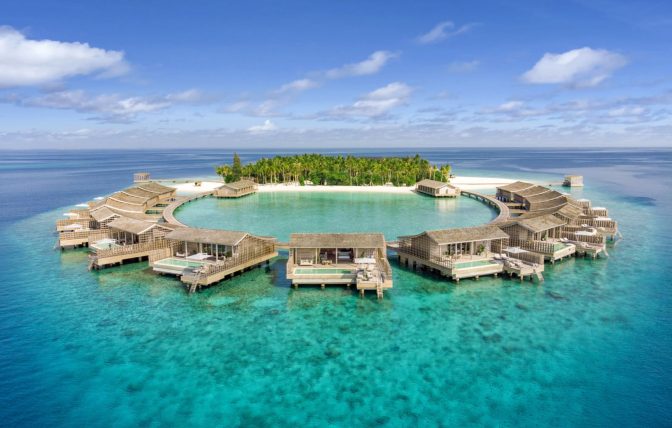


When it comes to hospitality, luxury has always been synonymous with opulence, exclusivity, and exceptional service. Over the years, however, the definition of luxury has evolved, reflecting the changing needs and expectations of discerning travellers. Today, a luxury hotel is more than just a lavish accommodation; it is an immersive experience that caters to the desires and aspirations of its guests. Let’s explore the key elements that make a luxury hotel stand out in today’s competitive hospitality industry.
One of the first impressions a luxury hotel makes is through its design and architecture. Today’s luxury hotels go beyond mere grandeur and focus on creating unique spaces that blend contemporary aesthetics with local culture and heritage. They employ renowned architects and interior designers to craft stunning environments that evoke a sense of place and provide a visually captivating experience for guests.
Luxury hotels are known for their unparalleled service, and this aspect remains fundamental in defining their luxury status. From the moment guests step foot into the hotel until their departure, every interaction should be personalized, seamless, and attentive. Staff members are trained to anticipate guests’ needs, ensuring their comfort and satisfaction throughout their stay. From concierge services to butlers, every detail is meticulously taken care of to create a truly memorable experience.
Culinary excellence has become a hallmark of luxury hotels. Today’s luxury travellers seek unique dining experiences that tantalize their taste buds and cater to their dietary preferences. Luxury hotels often feature renowned chefs and offer a range of dining options, including Michelin-starred restaurants, farm-to-table concepts, and immersive culinary journeys that celebrate local flavours and ingredients. Whether it’s an exquisite fine-dining experience or a casual culinary adventure, the quality and innovation in food and beverage offerings play a pivotal role in defining a luxury hotel.
In recent years, wellness and well-being have emerged as significant considerations for luxury travellers. A luxury hotel is expected to provide holistic wellness experiences that cater to both the body and mind. From state-of-the-art fitness centers and world-class spas to yoga and meditation retreats, these hotels go beyond mere relaxation and pampering. They curate wellness programs, offer personalized treatments, and promote healthy living, allowing guests to rejuvenate and find balance during their stay.
In today’s digital age, luxury hotels must seamlessly integrate cutting-edge technology into their offerings. From high-speed internet access and smart room controls to immersive entertainment systems and personalized mobile apps, technology should enhance guests’ experiences while maintaining the highest standards of privacy and security. Luxury hotels leverage technology to provide convenience, efficiency, and connectivity, without compromising on the personal touch that defines their service.
A luxury hotel’s commitment to sustainability and social responsibility has become a crucial factor in defining its appeal. Modern luxury travellers are conscious of their environmental footprint and seek accommodations that align with their values. Luxury hotels are investing in eco-friendly practices, energy-efficient infrastructure, and responsible sourcing to minimize their impact on the environment. They also actively engage in local community initiatives and support social causes, making a positive contribution to the destinations they operate in.
While luxury hotels offer a sense of opulence and comfort, they also understand the importance of providing guests with authentic local experiences. Luxury travellers are keen to immerse themselves in the local culture, traditions, and flavours of their destination. As such, luxury hotels curate experiences that showcase the best of the local area, including guided tours, culinary workshops, art exhibitions, and collaborations with local artisans. These experiences add depth and richness to guests’ stays, allowing them to connect with the essence of the destination.
In conclusion, the definition of a luxury hotel has evolved to encompass more than just lavish accommodations. Today’s luxury hospitality is about creating immersive experiences that combine exceptional design, impeccable service, culinary excellence, wellness offerings, cutting-edge technology, sustainability, and authentic local experiences. As travellers’ expectations continue to evolve, luxury hotels must stay attuned to these trends and strive to exceed them, ensuring that their guests receive nothing less than an extraordinary and unforgettable experience.